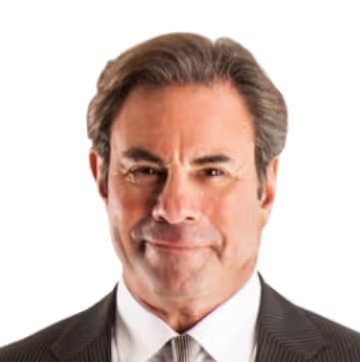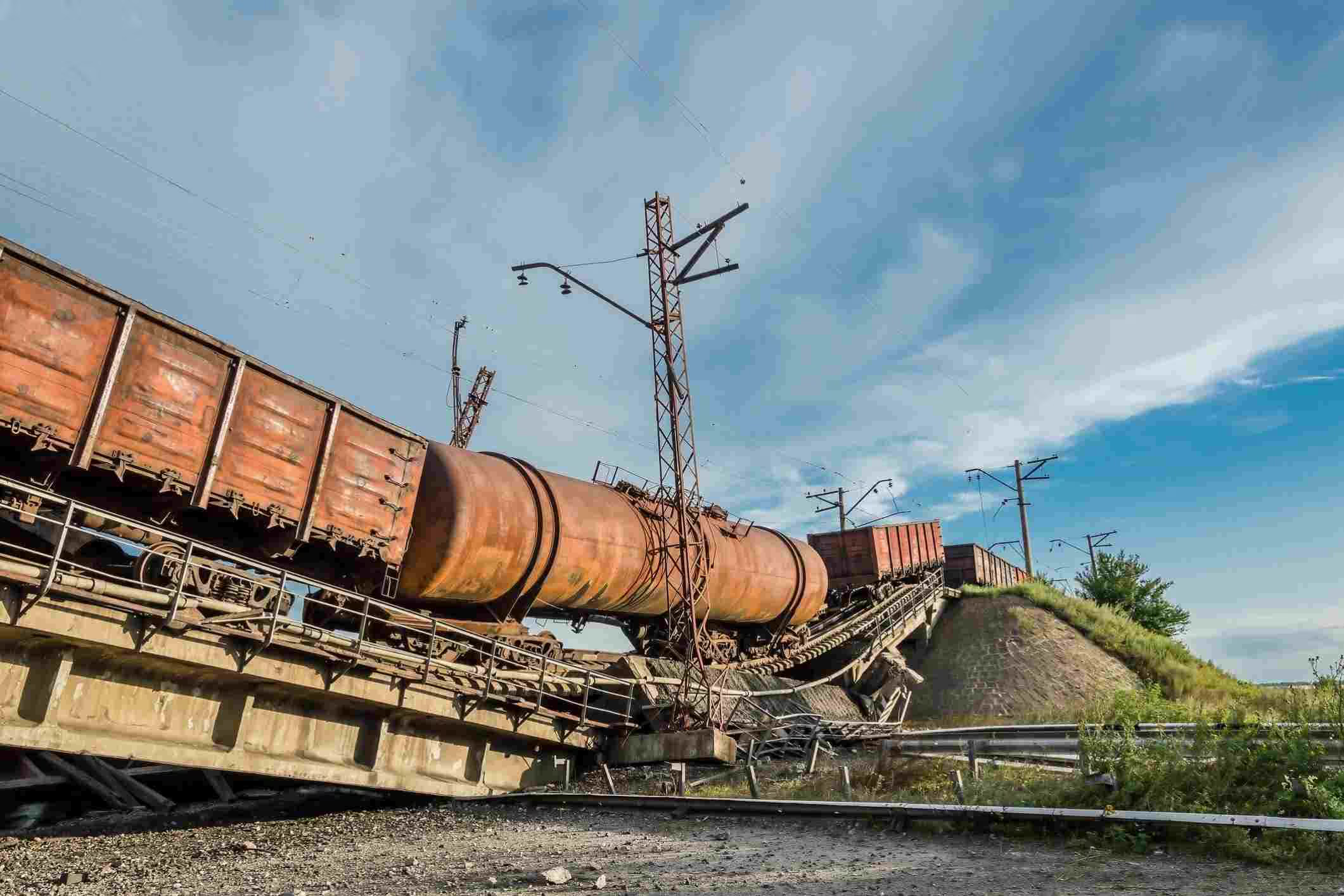Train Accident Lawyer in Virginia
Click on the link below to connect with our legal team for a free consultation, we’ll respond within 1 hour during business hours. Or call us 24/7 at (757) 244-7000.












Train accidents are seldom minor incidents when it comes to the amount of damages, severity of injuries and losses for victims. With so much at stake, a train accident lawyer will ensure your family receives fair and just compensation after a Virginia railroad accident.
Not only are railroad crashes often devastating, they are complicated when it comes to assigning liability. There are multiple parties to consider and Virginia laws can make it difficult to file a lawsuit against certain entities. These issues might be hard for victims to navigate, but a seasoned railroad accident lawyer is well-acquainted with them and can ensure your rights are protected.
Regardless of how you’ve been injured, the train accident attorneys at The Smith Law Center provide highly experienced legal representation for Virginians across the commonwealth. Our firm has fought for over 50 years on behalf of catastrophic injury victims who have been harmed by the careless or negligent acts of others.
To receive a free, private legal consultation for your potential case, please call our offices at (757) 244-7000.
Train Accident Settlements
Trial Verdict for Gas Station Manager Who Suffered a Mild Head Injury
Awarded: $60,264,823.00
MANASSAS, Virginia – A jury awarded over $60 million to a Williamsburg man injured when a Norfolk Southern train derailed and sent two cars careening into the RaceTrac service center he managed.
Types of Train Accidents
There are three main types of train accidents that may warrant speaking with a train accident lawyer. These include:
- Train-to-car, when a train collides with any outside passenger vehicle
- Train-to-passengers, involving accidents that injure those passengers on the train
- Train-to-train, in which two separate trains are involved

Train-to-car accidents are the most common, which often occur at railroad crossings. Unfortunately, when drivers in passenger vehicles attempt to cross the tracks before the level crossing barrier arms have fully extended, the results can be deadly. In such a case, there is likely no legal recourse, since drivers are obligated to follow road laws and obey traffic signals, including those at railroad crossings.
However, level crossing signals have malfunctioned all too often. Buildings and other objects may obstruct a driver’s view on both the train and inside a passenger vehicle. Injuries or death resulting from a malfunctioning railroad signal may be grounds for a lawsuit.
Train-to-passenger accidents account for those involving passengers on the train, such as Amtrak train crashes. There are multiple potential causes to be explored when a passenger train crashes, many of which are outlined below. These cases will often require the investigative resources of a train accident lawyer.
Virginia has seen its share of passenger train accidents, including the 2018 crash in Crozet, Virginia, that was triggered by a garbage truck driver who drove around the crossing barriers and was struck by an oncoming Amtrak train. This is an example of both a train-to-car and train-to-passenger accident.
Train-to-train collisions are perhaps the deadliest of the three types of train crashes, with head-on collisions being a main cause of death. Such was the case in the 2008 Metrolink crash in Chatsworth, CA that ended in 135 injuries and 24 fatalities — one of the worst train-to-train accidents in history. The crash occurred when a driver, who was distracted by text messaging, missed a stop signal and hit a freight train head-on.
Common Causes of Train Accidents
There are several reasons why train wrecks continue to occur on railways. Because trains are capable of traveling at speeds that exceed 100 mph today, sudden stops or slow downs on the train can cause acceleration or deceleration accidents by the train’s momentum.
A few of the most common causes for train accidents include:
- Derailment — This can be due to a lack of safety protocol, faulty or malfunctioning equipment, cargo overload, broken tracks or speeding around curves
- Defective or malfunctioning gates and signals
- Driver or conductor (engineer) negligence
- Lack of maintenance
- Overloading
- Lack of training
- Insufficient safety equipment
- Poor track conditions
The number of train accidents can also be attributed, in part, to increased freight railroad traffic and train density that has reached record high levels since 1980. Many of these accidents could be prevented with proper track maintenance, better worker safety standards and better management of railroad crossings.
Train Accidenrt Injuries
The havoc caused by train and railway accidents rivals the damage caused in plane wrecks. Those who are fortunate enough to survive these disasters usually face severe injury that could cost millions in medical care.
More often than not, train accidents cause serious injuries such as:
When injuries are serious, treatment will be expensive and most likely lifelong. Catastrophic injuries can quickly overwhelm any family. This is why it’s critical that you speak with an experienced train accident attorney as soon as possible to ensure you receive maximum compensation.
Your recovery amount from a train accident lawsuit will hinge on your lawyer’s experience handling such cases. Before choosing who to represent you and your loved ones, be sure to ask for an explanation of their qualifications, including their case results.
Contact a Train Accident Lawyer Today
The Virginia railroad crash lawyers at The Smith Law Center keep a close watch on railroad safety violations and are well aware of the vast damage a train wreck can cause. We are familiar with the factors that cause railroad and train accidents and how to hold those responsible for them liable in a court of law.
Whether you are a railroad employee injured during on the job, an unsuspecting passenger, or the surviving loved one of a train accident victim, contact The Smith Law Center today at (757) 244-7000 to learn how you can achieve justice for your losses.
Common Question About Train Accident & Railroad Injury Lawsuits
Can you sue for a railroad accident?
Yes, if you or a loved one has an injury that can be traced to the negligence of a person, corporation or other entity, you may be able to file a civil lawsuit and seek damages against the party who allowed for the railroad accident. You may also qualify for a wrongful death lawsuit if you lost a loved one in a train accident because of negligence.
If you’ve been injured, it’s best to contact a train accident lawyer immediately to understand whether your injuries qualify for legal action.
Who is liable in a train accident?
Depending on how the injury occurred, liability in train accidents can be assigned to any person or entity whose negligence contributed to your injury or the death of your loved one.
Liable parties might include:
- A train passenger
- The train driver
- A pedestrian
- The driver or passenger of another vehicle
- A railroad employee
- Train manufacturers
- The railroad company
In order to have a qualifying train accident lawsuit, you will need to prove that another person’s careless actions resulted in your losses. At times, this might not be immediately obvious. A skilled train accident lawyer will be able to determine whether someone can be held liable for a train crash.
What type of damages can a railroad accident lawyer recover?
Whether you are an employee of a train company, a train passenger, or a victim who was outside the train, you may qualify for a list of damages for your injuries.
A train accident lawyer can recover monetary compensation for losses such as:
- Lost wages from the injury
- Loss of projected income due to permanent disabilities
- Medical bills, surgeries, and related injury costs
- In-home assistance devices or handicap adaptations
- Emotional trauma
- Pain and suffering
- Loss of a loved one
Your attorney will seek the maximum allowable recovery for your injuries and handle all case details so that you are able to focus on your physical and mental well-being.
Can I sue a rail company for injuries if I work for them?
Yes, rail workers can sue their employer if they’ve suffered injuries or illness as a result of the employer’s negligence. This is made possible by the Federal Employers Liability Act (FELA), which gives a railroad worker the option of filing a civil lawsuit to claim damages.
Those who can bring a lawsuit may include:
- Train operators
- Train conductors
- Train engineers
- Maintenance technicians
- Railroad flagman
- Track laborers
- Rail car repairers
It’s worth noting that an employee can also sue if he or she is injured while not performing usual work duties. For example, slipping or falling while walking to a job site or being struck by a falling object on the premises could be covered under the FELA.
What is FELA?
The Federal Employers Liability Act (FELA) was passed during a time when railroad activity was booming and safety was severely lacking for workers. The FELA allows railroad workers to file a civil lawsuit for an injury if they can prove that an employer was at least partially responsible for the injury due to negligence.
Worker’s Compensation vs. the FELA for Rail Workers
Railroad workers do not qualify for automatic compensation for injuries sustained on the job as most employees do. The FELA provides different benefits and eligibility requirements that worker’s compensation does not.
For example, worker’s compensation does not require an employee to establish negligence, though a lawsuit under the FELA does. While worker’s compensation benefits take effect immediately following a workplace accident, they cover limited damages. A lawsuit under the FELA must find fault with the workplace, but it often awards an employee significantly more in damages.
Experienced Railroad Injury Lawyers in Virginia
The Virginia railroad crash lawyers at The Smith Law Center are adept at winning compensation for railroad accident victims of all types — whether employees, passengers, pedestrians or passenger vehicle drivers.
To find out how we can help your family, please call our offices at (757) 244-7000 to receive a free, private legal consultation. Our railroad accident attorneys are happy to assist you and your family during this trying time and assure you that we will help you make the best choice for you and your loved ones moving forward.
FAQs
Train Accident Verdicts & Settlements
Trial for Gas Station Manager Results – Verdict in Mild Head Injury
Awarded:
Summary:
%201%20(1).avif)
About Smith Law Center
About Smith Law Center
%201%20(1).avif)











